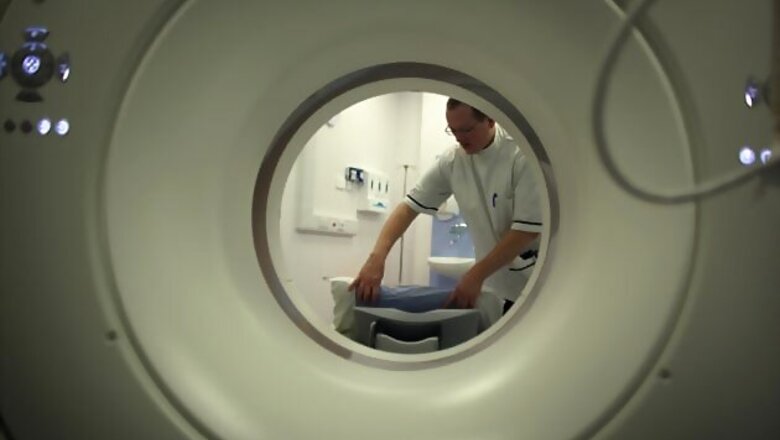
views
Washington: Scientists have discovered that a cancer protein can trigger variety of tumours since unlike other cell growth regulators it doesn't turn genes on or off but instead boosts the expression of genes that are already turned on.
Researchers from the National Institutes of Health in US and colleagues have discovered the mechanism which is responsible for MYC protein leading to various cancers.
The protein aids in cell activation, a process in which cells mature and divide quickly. During an immune response, for example, white blood cells are activated to help fight infections.
If activation isn't properly regulated, then cells can start growing out of control and result in cancer. Researchers have known that abnormally high levels of MYC can lead to cancer, but until now, no one had been able to explain how it can lead to so many different cancers.
"We carried out a highly sophisticated analysis of MYC activity in cells, but came away with a simple rule. MYC is not a power switch but a universal amplifier," said co-lead study author Keji Zhao.
"This discovery offers a unifying idea of how and why abnormal levels of MYC are found in so many different cancer types, such as breast cancer, lung cancer, and several blood cancers," Zhao said in a statement.
Researchers noted that this new understanding of MYC function could influence future treatment efforts for MYC-associated tumours.
They suggest that trying to limit MYC activity would be a better strategy than using targeted chemotherapy to try to eliminate all MYC activity.
The team used a specially designed fluorescent protein that allowed them to track MYC in white blood cells in a lab dish.
They chose white blood cells, specifically B cells and T cells that fight infections, because they are frequently affected by abnormal MYC and can transform into lymphoma and myeloma cells.
The team exposed the B and T cells to foreign toxins to stimulate an immune response and activate the fluorescent MYC. The analysis revealed that MYC didn't prefer any specific type of gene. Instead, MYC proteins were present at nearly every gene that was already expressed, or turned on.
The protein appeared to amplify productivity relative to the initial expression levels where it gave a small boost to genes with low activity and a big boost to genes with high activity.
The study was published in journal Cell.




















Comments
0 comment